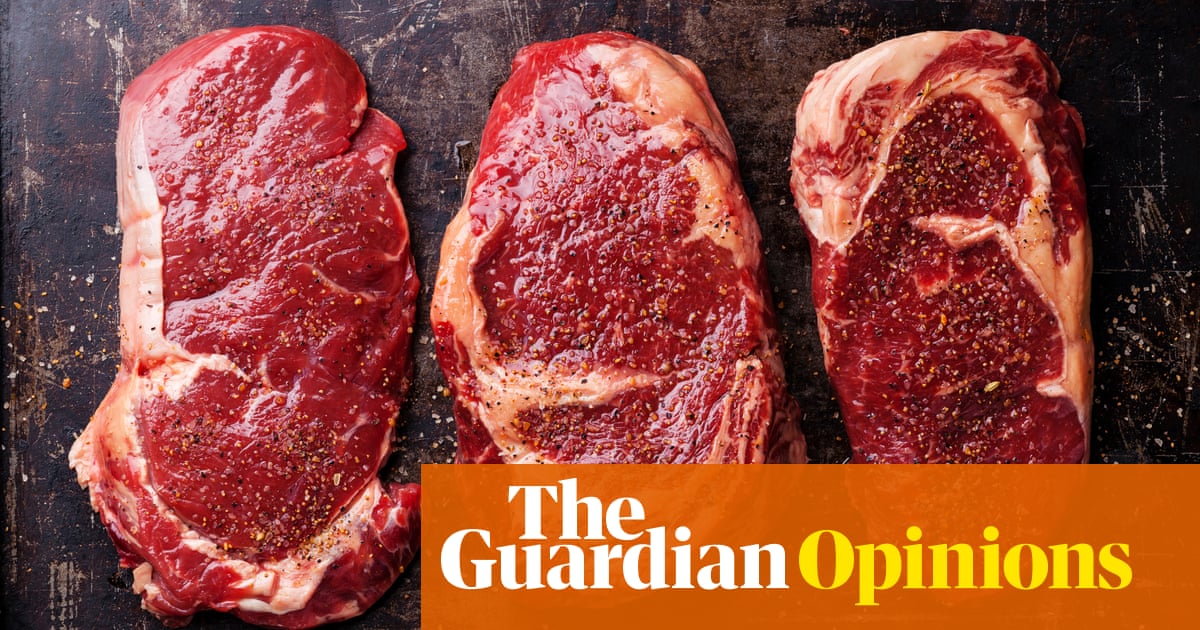Sudanese farm grows connection in Minnesota amid conflict at home | Black farmers

On a recent Sunday, instructions in Arabic and English filled the air on a quiet street in New Hope, Minnesota. Every weekend, a group of Sudanese American professionals and students come to the half-acre space nestled near a distribution warehouse about 20 minutes north of Minneapolis. Their goal: to farm, and to do it together.
For the Sudanese Farming Group (SFG), every decision on this small plot of land is a collective one, every crop carefully tended. And each week brings new conversations, discoveries and people.
Co-founders Khalid Elhassan and Haytham Ibrahim are both engineers and were inspired by a news broadcast describing Black residents’ farming initiatives in the Twin Cities. Established in 2022, the SFG connects Minnesota’s small Sudanese community, close to 3,500 people statewide, to a shared history of cultivation.
“In 20 years here, I had never seen [Black farmers in Minnesota],” said Elhassan. He had come to the US from the African nation 25 years ago for work. His family hails from Nuri, located on the west side of the Nile River and known for its ancient pyramids. As a farming community, it’s the birthplace of Elhassan’s interest in agriculture.
After hearing the media report, he eagerly reached out to Angela Dawson, founder of the 40 Acre Co-op and a fourth-generation “reclamation” farmer.
Despite the different histories of Black Americans and African immigrants, the idea of agricultural reclamation – a return to communal labor and ancestral practices – was a unifying one. For the SFG, reclamation signaled an opportunity to reconnect with land, compatriots and cultivation in an adopted homeland.
“Most of us here are only one or two generations removed from farmers in Sudan,” explained Elhassan. “We aren’t just emerging farmers. We are returning farmers.”
That is the case for Gamal Dirdeeri, a physician and SFG member. “I’ve missed being outside. My dad was a farmer, and I used to go with him almost every day for three, four months a year. I’ve missed just feeling at home. I don’t think I’ve felt at home, like my village in Sudan [Gedaref, a sesame- and cotton-farming hub near the Ethiopian border], other than the moments here at the farm.”
Sudan, which lies at the intersection between sub-Saharan Africa and the Middle East, has been embroiled in civil wars and unrest for much of the last 20 years. Yet it was once considered a garden basket of the region, with agriculture accounting for 60% of its exports. But production has been largely interrupted since war broke out in April 2023. Now, an estimated 10 million people have been displaced by conflict, and about 45 million face food insecurity and famine.
While some of the farming group’s 60-odd members fled recent violence – and came to Minnesota due to its large African community – their path to the state is not a single one. Some of the members, those whose parents or grandparents came to the US, use the SFG to connect to a Sudanese identity that felt unfamiliar.
“Our youth – from kindergartners to teens – attend, play around and help us. They get something out of being here,” said Ibrahim.
Farming and cultivation efforts built around reclamation are on the rise among Minnesota immigrant communities. The SFG is part of a slew of African immigrant farms that have been established in Minnesota in recent years. Kenyan immigrants Moses and Lonah Momanyi lead the Kilimo incubator farm. There’s even a Somali American farmers’ association, reflecting the state’s large Horn of Africa community.
The 2023 establishment of the Emerging Farmers Office (EFO) within the state department of agriculture acknowledged the trend.
“The need for marginalized communities to have a voice [in agriculture] is integral – not optional,” explained Patrice Bailey, assistant commissioner at the Minnesota department of agriculture. “The value is having an office dedicated to young farmers, women, entrepreneurs, Bipoc, African farmers and more. It gives an entry point into agriculture.”
For the SFG, that entry point has largely been the campus of The Food Group. The non-profit runs the incubator farm where SFG, three other African-led farms and other growers learn everything from organic cultivation to selling their produce at farmers markets.
Profits from produce sales and grant dollars will go to the eventual purchase of the SPG’s own farm. Elhassan already envisions what that farm should look like. “We want a big tree, a gate like those our homes back in Sudan. We want it to be as if you walked into a Sudanese village.”
On the SFG’s plot in New Hope, people who have never touched a crop work next to seasoned experts. They care for culturally relevant crops: molokhia, jute leaves that are commonly called Egyptian spinach; okra; and ajjour, a large muskmelon that’s related to the cucumber and common in cuisines from Armenia to Syria. To round out their farm, the members have also planted eggplants, peppers, pears, apples, mint, alfalfa and tomatoes ”the Sudanese way”.
Here, “the Sudanese way” is built on cooperative, familial efforts – reminiscent of large, shared farms along the Nile Basin. They all care for the sheep, including a crowd favorite Hamada (“praiseworthy” in Arabic), on their new livestock farm an hour from the New Hope site. And they share in the work and bounty of harvesting food.
“We work together and share the crops at the end of the year. We grow specific plants that bring back good memories, like molokhia. We sit down how we did in Sudan … at one of the benches at our farm here and clean the leaves. It brings back good memories of doing the same thing in a family setting in Sudan,” said Ibrahim.
Volunteers enjoy lunch and time with others, and they can leave with a vegetable basket brimming with tastes of home.
Ibrahim said: “We’ve ended up creating a venue for a lot of community members who live in the outskirts to get more involved and feel like they are important parts of the community. They bring us so much, even in a piece of wisdom or a story about Sudan.”
Comments about new war developments are sprinkled between chitchat and planting advice. “When you find people who share the same tragedy as you, it offers some relief,” said Saleh Ali, a retired businessman and SFG grower.
At the moment, harrowing stories of agricultural disruption across Sudan weigh on the farmers’ minds. News reports detail intentional arson attacks on farming communities by the Rapid Support Forces paramilitary, which is warring with government forces. A UN development programme analysis revealed that over 70% of rural Sudanese households couldn’t cultivate any land during the summer 2023 season.
One day, when it’s safe in Sudan, the SFG hopes to open a farm in their homeland too. Drawing on their engineering expertise, Elhassan and Ibrahim are researching solar irrigation technology – relying on Sudan’s ample sun rather than foreign machinery that might prove unreliable in local conditions.
“Our people have been doing this for a thousand years,” said Elhassan on organic farming. “Building a farm in Sudan is absolutely a priority, but it’s important we work with the farming communities there. It’s not our place to go in and say they’ve been doing it wrong. It’s just different.”
Source link




